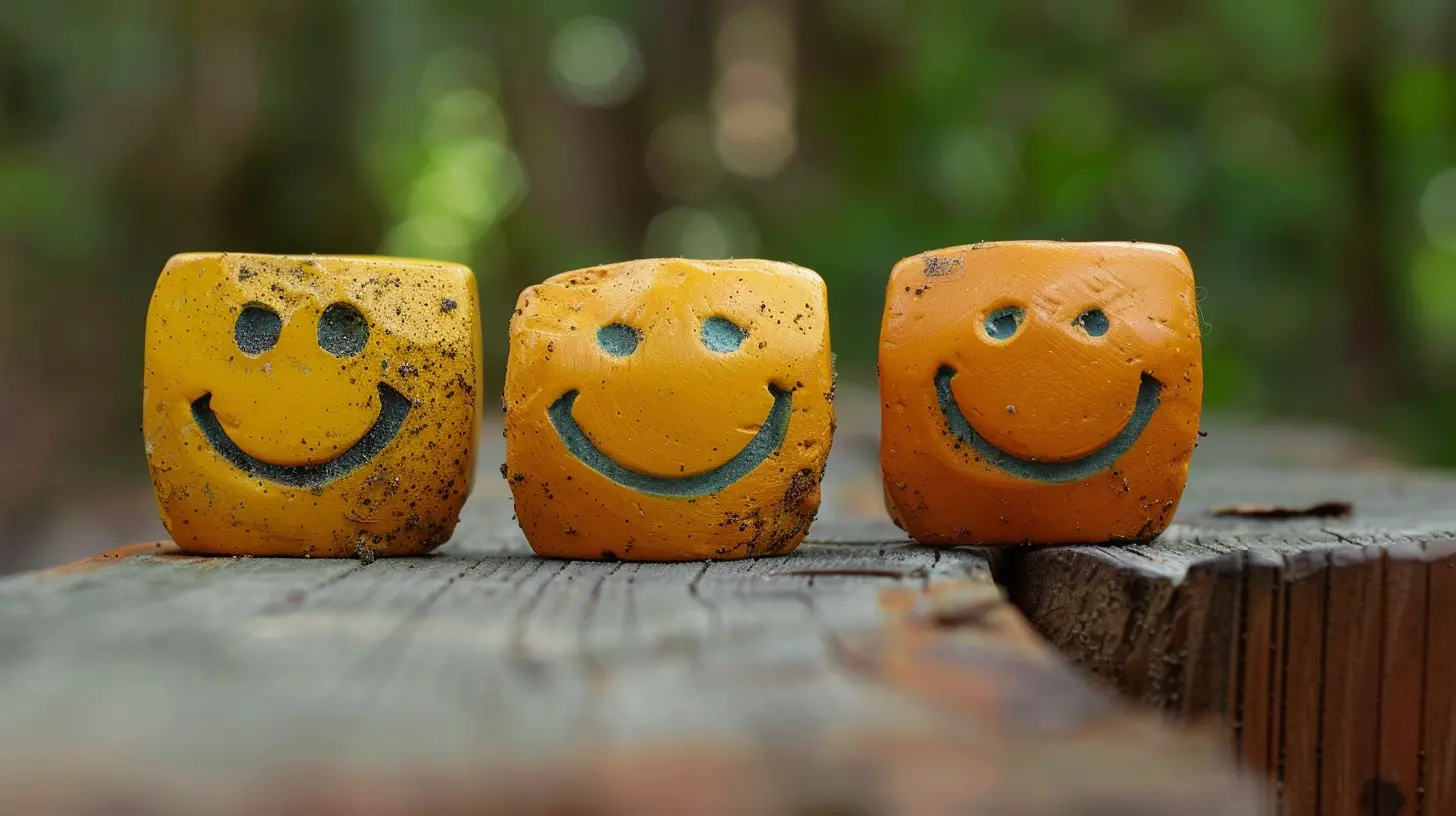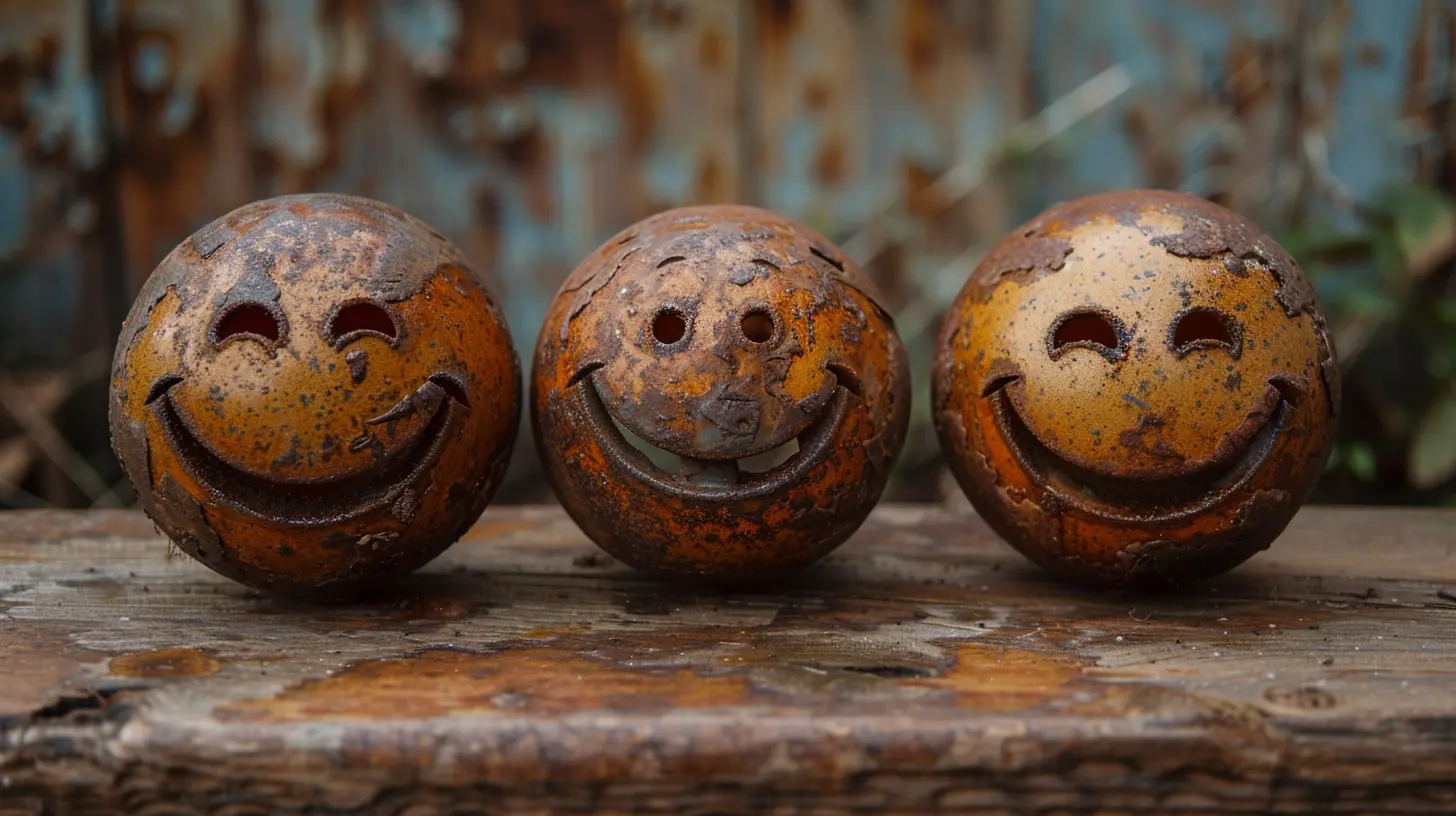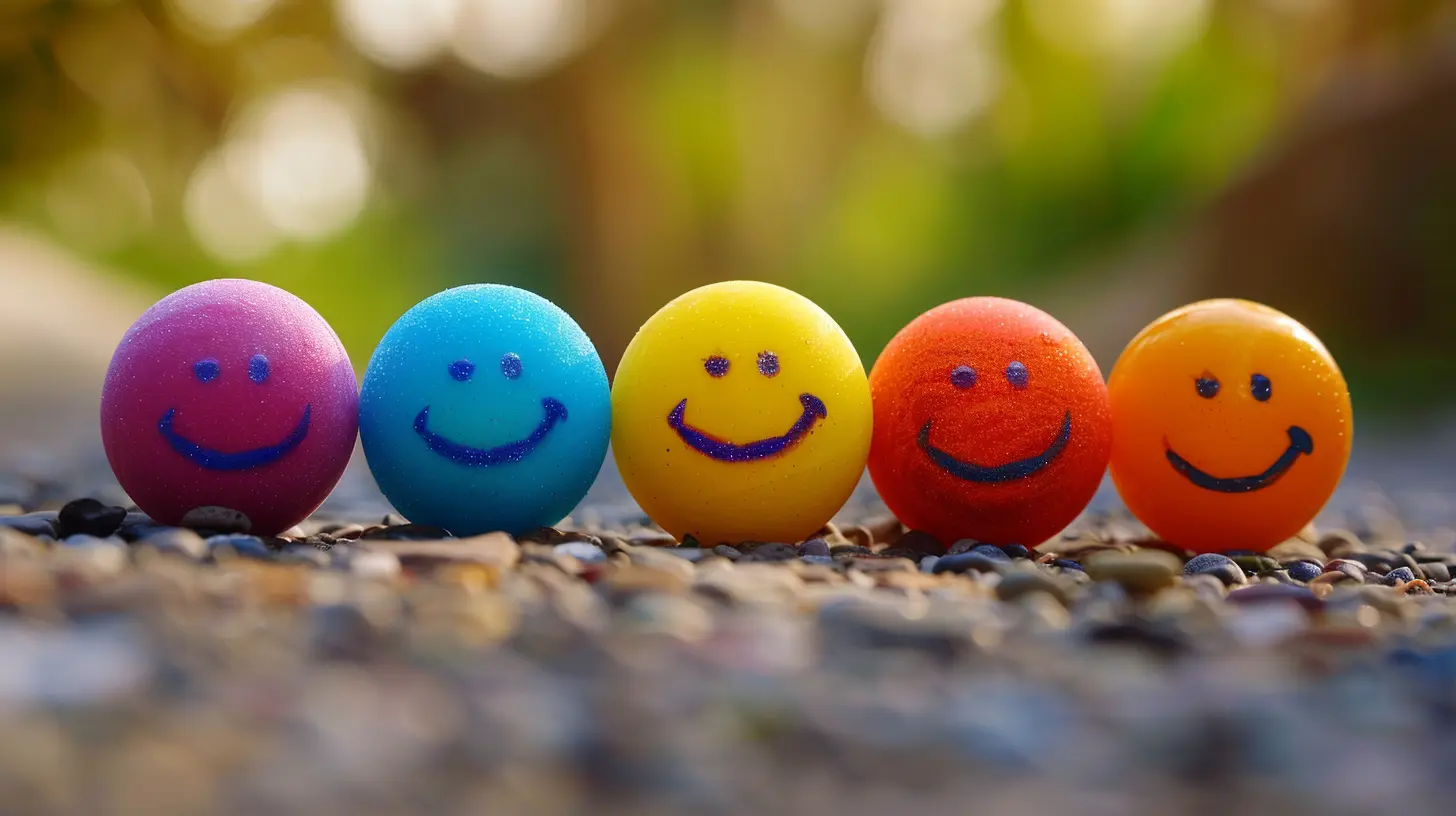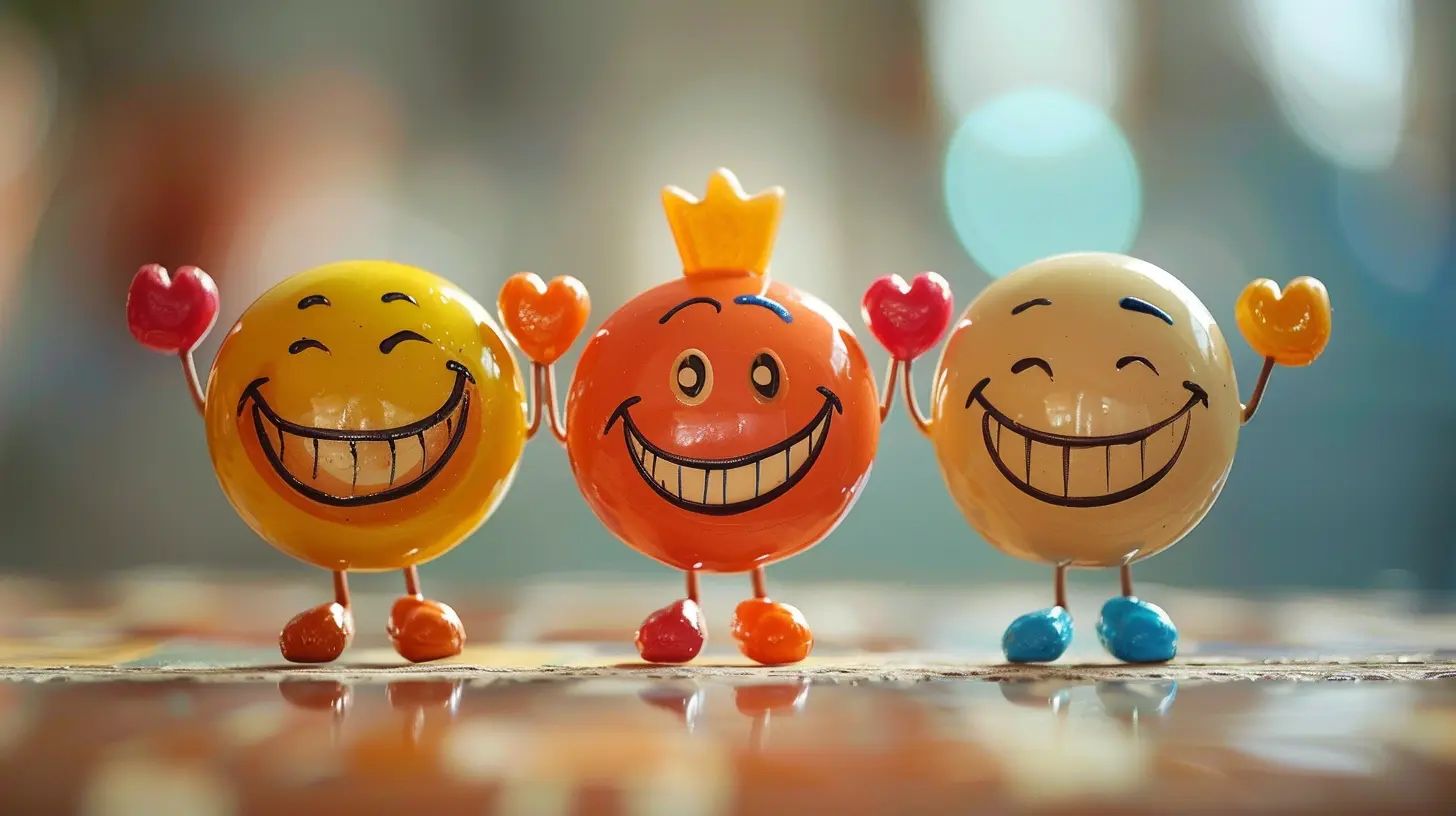How Laughter Really is the Best Medicine for Stress Relief
7 September 2025
Stress is that uninvited guest who crashes into your life, overstays its welcome, and turns everything upside down. Whether it's triggered by work, relationships, or just the chaos of daily life, stress can really mess with your physical and mental health. But here’s a surprising antidote that doesn't require a prescription: laughter.
Yep, laughter. That giggle, chuckle, or full-blown belly laugh could be the key to unlocking a calmer, happier you. Let's dive into why laughter really is the best medicine for stress relief—and how you can inject more of it into your life today.
The Science of Why We Laugh
Ever think about how weird laughter actually is? I mean, you exhale air in funny patterns, make odd noises, and sometimes even snort, all because something tickled your funny bone. But it turns out, this quirky behavior has deep biological roots.Laughter: A Built-In Stress Buster
When you laugh, your brain releases a cocktail of feel-good chemicals—think endorphins (your body's natural painkillers), dopamine (your mood booster), and serotonin (the happiness hormone). At the same time, stress hormones like cortisol and adrenaline take a nosedive. It's nature's way of bringing balance to your stressed-out system.It Starts in the Brain
Laughter lights up several regions of your brain—the prefrontal cortex, amygdala, and even parts linked to motor function. All these areas coordinate to process humor, recognize a joke, and physically respond through laughter. That means your body and brain are working in sync to deliver this natural stress reliever.
Physical Benefits of Laughing It Out
You’ve probably heard people say, "I laughed so hard my stomach hurt!" That’s because laughter isn’t just good for the soul—it’s actually giving your body a mini workout.It's Like Cardio (But Way More Fun)
Laughter increases your heart rate, boosts blood circulation, and even improves oxygen intake. Your lungs expand, and your core gets a workout—kinda like doing light aerobic exercise. Sure, it won’t replace your gym sessions, but it gives your body a refreshing jolt of energy.Bye-Bye Muscle Tension
Ever notice how you're physically more relaxed after a good laugh? That's because laughter relieves muscle tension. Your body unwinds and enters a relaxed state that can last up to 45 minutes after the laughing stops. It’s like a little massage for your nervous system.
Mental and Emotional Perks of Laughing More
Stress loves to mess with your mind—making you anxious, foggy, and emotionally drained. But laughter? It’s like a mental reset button.A Natural Mood Elevator
When you’re laughing, it’s nearly impossible to feel angry, anxious, or sad. It’s like your brain’s way of saying, “Hey, let’s lighten up a little.” That temporary distraction can help you shift your perspective and face challenges with a clearer, more positive mindset.Resilience Booster
Life throws curveballs. But people who laugh easily and often are usually better at bouncing back from setbacks. Why? Because laughter helps you stay emotionally flexible. It lightens the burden and reminds you that “this too shall pass.”
How Laughter Strengthens Relationships (Yep, It’s Social, Too)
Think about the last time you really laughed—was someone else involved? Chances are, yes. Laughter connects us. It helps break the ice, build trust, and create shared experiences that foster stronger relationships.Social Glue
Whether it’s a playful moment with your partner or a shared joke with coworkers, laughter brings people together. It builds rapport, lowers defenses, and creates a sense of belonging. And let’s face it, feeling connected beats feeling stressed every time.The Stress-Reducing Power of Group Laughter
Ever heard of laughter yoga? It’s a thing—and it works. Even fake laughter (yes, you read that right) in group settings can morph into genuine giggles, with all the stress-busting benefits included. Why? Because your brain can’t always tell the difference between real and fake laughter. It still releases those feel-good chemicals.Ways to Add More Laughter to Your Life
Okay, so we’re sold on the benefits. But how do you actually get more laughter into your day-to-day routine, especially when life feels anything but funny?1. Watch or Listen to Something Funny
This one's easy—put on your favorite comedy special, binge-watch funny pet videos, or tune into a podcast that cracks you up. Even a 5-minute humor break can shift your whole mood.2. Hang Out With Funny People
Laughter is contagious. So surround yourself with people who find humor in the everyday. That friend who always has a silly story to tell? Call them.3. Practice Laughing (Seriously)
It might feel awkward, but you can literally practice laughing. Try fake laughing for just a few minutes a day. It might start out forced, but it usually leads to real chuckles before you know it.4. Don’t Take Life Too Seriously
Easier said than done, but finding humor in tough moments can be incredibly healing. Got caught in the rain without an umbrella? Turn it into a comedy bit instead of a pity party.5. Try Laughter Yoga or Laughter Meditation
Yes, they exist—and yes, they work. These practices combine intentional laughter with breathing exercises, helping you de-stress and improve emotional resilience. You don’t need to be flexible or even particularly spiritual—just open to looking a little silly, and feeling a whole lot better.Real-Life Stories: How Laughter Changed Lives
Sometimes, the best proof isn't found in studies—it's in stories. Here are a few examples of how laughter became a lifeline for folks dealing with overwhelming stress.Sarah's Story: Laughing Through Loss
After losing her job during the pandemic, Sarah was in a dark place. Bills piled up, confidence tanked, and anxiety took over. But one day, she stumbled onto a stand-up comedy video and couldn’t stop laughing. It became a daily ritual. Sarah says those 30 minutes of joy helped her shift her mindset, build resilience, and eventually land a new job.Jake's Journey: Humor in Healing
Jake battled chronic illness for years, which left him physically drained and emotionally wrecked. But he started writing a humorous blog about his experiences—and something magical happened. Not only did others relate and laugh along, but Jake found that humor lightened the emotional weight of his illness, making it more manageable.Can Laughter Replace Therapy or Medication?
Short answer: No, not completely. While laughter is a powerful tool, it’s not a standalone solution for serious mental health conditions like clinical depression or chronic anxiety.But here’s the good news: It’s an amazing complementary practice. Think of it as adding seasoning to your mental health “diet.” It won’t replace the main course, but it can definitely spice things up and make life more flavorful.
If you’re struggling, don’t hesitate to reach out to a mental health professional. Think of laughter as a sidekick—helpful, uplifting, but not a solitary hero.
Final Thoughts: Laugh More, Stress Less
Laughter truly is one of the simplest, cheapest, and most enjoyable ways to dial down the stress and pump up the joy. It’s always available, doesn’t require a gym membership, and has no side effects (except maybe laugh lines—and who doesn’t want those?).So the next time stress comes knocking, try greeting it with a grin. Watch a silly movie, call a friend who cracks you up, or just take a moment to find the funny in your situation.
Because honestly, if life’s a rollercoaster, laughter is your seatbelt. It won’t stop the ups and downs, but it sure makes the ride a lot more enjoyable.
all images in this post were generated using AI tools
Category:
Stress ManagementAuthor:

Arthur McKeever
Discussion
rate this article
1 comments
Joanna Roberts
Absolutely! Laughter truly works wonders for stress relief. So, let’s embrace those giggles and chuckles—whether it’s a funny movie, a silly joke, or a laugh with friends. Your health will thank you, one chuckle at a time! 😊
September 9, 2025 at 3:11 PM

Arthur McKeever
Absolutely! Embracing laughter is a powerful tool for stress relief. Let's keep the giggles coming! 😊


